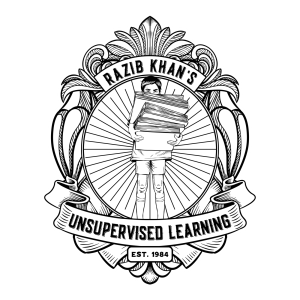
Razib Khan's Unsupervised Learning
Science:Life Sciences

Nicola Buskirk: old books for a new generation
 2023-08-24
2023-08-24
https://razib.substack.com
This is where you will find all the podcasts from Razib Khan's Substack and original video content.
On this episode of Unsupervised Learning Razib talks to Nicola Buskirk of Elessar Books (see her Substack). A 2022 graduate of Stanford University, Buskirk has already had positions at Substack (she was behind the At Length series), Thiel Foundation, Hoover Institution and now, Protocol Labs. At Elessar she is “putting long out-of-print books back into print so that they may be easily read and studied by a new generation of readers.”
Before asking about her new project, Razib asks her about Elessar, an alternative name for the character known as Aragorn. They discuss why J. R. R. Tolkien’s The Lord of the Rings series, written in the first half of the 20th century, appeals to young people born in the 21st century. Buskirk believes that much of the attraction is in Tolkien’s depiction of good and evil in a manner that edifies and educates but with subtlety and complexity. They discuss the differences between Tolkien’s fantasy writing style, and that of his colleague and friend C. S. Lewis, whose Narnia series was far more nakedly allegorical than The Lord of the Rings . Razib and Buskirk also discuss whether Tolkien’s work was fundamentally Roman Catholic, as the author claimed, or whether its purview is broader, explaining its lasting appeal. They also touch upon the relationship of the films to the books, and how Peter Jackson pulled off the sort of adaption that Amazon failed at.
Then the conversation shifts to why Buskirk began Elessar Books, the resurfacing of knowledge and wisdom for a generation weaned on smartphones and addicted to TikTok. She talks about conversations with peers where they were amazed by her insights, even though she freely admitted to them that she simply stood on the shoulders of the ancients, whose ideas are freely available in older books. Razib and Buskirk discuss if what Antonio Garcia Martinez calls the age of orality is a reversion to preliterate and frankly more primitive modalities of thought, and her attempt to resurrect, maintain and perpetuate a culture of deep literacy among her technology-addicted generation.
More Episodes
 2022-11-18
2022-11-18
 2022-10-22
2022-10-22
 2022-09-29
2022-09-29
 2022-08-31
2022-08-31
 2022-08-19
2022-08-19
 2022-08-01
2022-08-01
 2022-07-23
2022-07-23
Create your
podcast in
minutes
- Full-featured podcast site
- Unlimited storage and bandwidth
- Comprehensive podcast stats
- Distribute to Apple Podcasts, Spotify, and more
- Make money with your podcast
It is Free
- Privacy Policy
- Cookie Policy
- Terms of Use
- Consent Preferences
- Copyright © 2015-2024 Podbean.com




